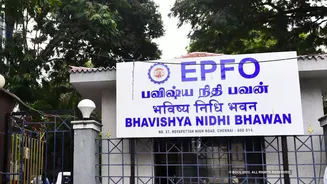The Knowledge Imperative
India's aspirations to be a global knowledge power require a thorough examination of its internal structures. The nation's knowledge landscape, influenced
by various factors, faces several significant obstacles. These hurdles affect India's ability to foster innovation, conduct cutting-edge research, and fully utilize its intellectual capital. Recognizing and addressing these issues is critical for India's ambition to become a world leader in knowledge creation and dissemination. The nation must cultivate an environment that nurtures intellectual curiosity, supports research and development, and encourages interdisciplinary collaborations. Only through dedicated reforms can India dismantle the barriers that limit its potential and establish a thriving knowledge economy. The need for India to invest strategically in education, infrastructure, and international partnerships is therefore paramount. By focusing on these critical aspects, India can transform its intellectual assets into tangible economic and societal advancements, leading to a brighter future.
Structural Disconnects Unveiled
Several structural disconnects currently undermine India's progress towards becoming a knowledge power. One primary issue is the gap between research and practical application. India often struggles to convert academic discoveries into innovative products and services. There's also a noticeable disconnect between educational curricula and the needs of the industry, leading to a mismatch in skills and job market requirements. The bureaucratic hurdles, funding limitations, and the lack of research infrastructure further compound the problems. Moreover, there is a disconnect between various academic disciplines, which hinders interdisciplinary research and collaboration. The fragmentation of knowledge leads to inefficiencies and duplication of efforts. The absence of robust international collaborations and global standards also prevents India from fully integrating into the global knowledge network. Addressing these structural disconnects demands comprehensive reforms to foster synergy, collaboration, and a dynamic ecosystem conducive to innovation. This will require sustained efforts from the government, academic institutions, and industry stakeholders.
Bridging the Gaps
To overcome these structural disconnects, India must implement strategic initiatives. It requires strengthening the links between academia, industry, and the government to promote technology transfer and commercialization of research. Revising educational curricula to align with current industry demands is essential to enhance the employability of graduates and foster a skilled workforce. Investing in research infrastructure, providing adequate funding, and streamlining bureaucratic processes would further aid in improving the environment for innovation. Encouraging interdisciplinary collaborations and fostering a culture of open communication among researchers is also crucial. Promoting international partnerships and aligning with global standards is equally important for integrating Indian research into the global knowledge landscape. By implementing these measures, India can bridge the gaps, nurture a thriving knowledge economy, and significantly boost its potential on a global scale. These reforms are not only necessary for economic growth, but also for societal progress, enabling India to compete in the global knowledge race.
The Path Forward
India's journey towards becoming a knowledge power involves a multi-faceted approach, starting with strategic investments in education and research. Comprehensive reforms of the education system, aimed at fostering critical thinking, creativity, and interdisciplinary learning, are vital. Prioritizing the establishment of world-class research institutions and providing substantial funding for research and development will enable India to advance in technology and innovation. Encouraging collaboration between universities, research institutions, and industry will accelerate the commercialization of research and its practical applications. Further, promoting international collaborations will facilitate the exchange of knowledge, ideas, and expertise, strengthening India's position in the global knowledge arena. Simultaneously, addressing issues of intellectual property protection and creating an ecosystem that safeguards innovation will encourage researchers and entrepreneurs. By focusing on these essential steps, India can pave the way for becoming a leading knowledge power, contributing significantly to global advancements and economic prosperity. This path emphasizes a long-term commitment to enhancing the nation's intellectual capital.














